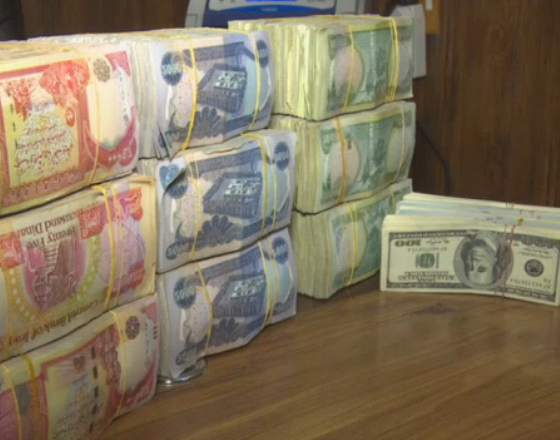
The U.S. dollar’s exchange rate in the Kurdistan Region’s markets fluctuates each day, ebbing and flowing against the Iraqi dinar (IQD), and while the region’s crude oil exports and resulting revenue are in dollars, some Kurdish officials say that income in U.S. currency is not responsible for the change in the rate.
Ali Hama Salih, deputy head of the Kurdistan Parliament’s finance and economics committee, told NRT on Saturday (June 18) that oil revenue is under a monopoly by one private bank in the region that has kept U.S. dollars out of the market to keep a high dinar rate.
“If not for the Iraqi Central Bank, the price of $100 U.S. dollars would increase to 200,000 IQD in the Kurdistan Region,” Salih said, adding that the Kurdistan Region currently sells $100 to the Kurdistan International Bank at 117,000 IQD.
Salih also maintains that the Kurdistan International Bank and at least two other financial institutions have received U.S. dollars from the Iraqi Central Bank, which they then exported outside of the Kurdistan Region.
Ali Halo, a member of the natural resources committee in Parliament, told NRT that the lack of a systematized banking system in the Kurdistan Region is to blame for the monopoly.
“The region’s revenue shouldn’t be only dealt with one private bank,” Halo said. “The Kurdistan Regional Government [KRG] should establish a new banking system.”
One economic expert believes the KRG may be dealing with private banks to bypass the Iraqi government altogether in its financial dealings.
“All government banks should have accounts and figures in the central bank,” economist Khalid Haider told NRT. “But the Iraqi government isn’t honest with us, so it’s the KRG’s right to keep some [from the Iraqi government].”
original source: http://www.nrttv.com/EN/Details.aspx?Jimare=8443
